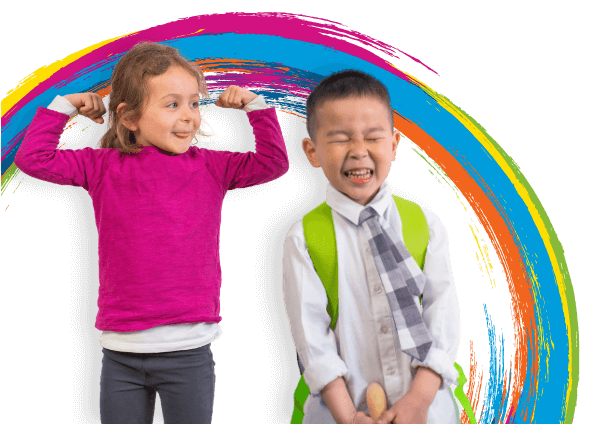Being bilingual means having total control of two languages. The benefits of bilingualism extend to social, as well as professional life.
There are a number of languages spoken throughout the world. Every person knows at least one language which he/she learns to speak and then write in his/her childhood. However, many people have a talent for new languages. In over 150 studies, it was proven that the practice of bilingualism is very advantageous in many ways.
Globalization has also contributed to an increased desire to take up new languages. Any new language one wishes to learn can be a dialect of the same country or a totally different language from another country. Many institutes and schools teaching foreign language courses are offered throughout the world. Many colleges and universities have included some foreign language courses in their regular academic syllabus itself, some even presenting a seal of biliteracy. Many parents have realised the importance of their young child effortlessly learning a second language, and have enrolled babies as young as three months in Helen Doron English’s Baby’s Best Start programme.
An interesting fact about biliteracy is that having knowledge of one language doesn’t push out the mother-tongue language. According to common underlying proficiency (CUP) model of language processing, the database of different languages in our mind, though linked, is stored in separate compartments with these languages having little impact on each other except at the surface level. If you are interested to know how dual-language-speaking-ambassadors or even standard translators have an advantage over monolinguals, this information follows.
There are a number of benefits of being proficient in two languages:
Cognitive Benefits
- A bilingual’s brain has two active language systems regardless of what the preferred language is. Thus, the brain is always exercising cognitive muscles. While people often take extra efforts to keep their mind sharp by solving crossword puzzles etc., for bilinguals, simply using another language does it.
- A speaker of two languages can think up two or more phrases or words for each idea and object, and can utilize this talent to sharpen personal creativity.
- General reasoning and concept formation get better as advanced linguistic skills like code-switching, accent neutralization and syntax appropriation are acquired when speaking two languages.
- Cognitive flexibility improves to a great extent via divergent and convergent thinking. It means that building up on a single idea as well as coming to a conclusion after examining various arguments become easier. This too has been attributed to parallel data processing.
- Meta-linguistic abilities are also developed easily in dual-language speakers. The differentiation between implied meanings and literal ones becomes clearer. One can think beyond labels, symbolism and language structure because the mind is not reserved to think in a single language.
- Dual-language speakers are aware of what language to speak with a person in a particular situation. Therefore, they are more sensitive to the needs of the listener than a monolingual person.
- Being bilingual has a positive effect on intellectual growth as it enhances and enriches a person’s mental development. Current research shows that bilinguals are better at IQ tests as compared with monolinguals.
- Bilingual acquisition does not lead to confusion or delay. The same rate of language acquisition is observed in two-language and one-language users. Rather, retention and comprehension of minute differences in sound are higher in bilinguals, even if they are not balanced bilinguals (equally proficient in both languages they speak).
Scholastic Benefits
- People who know two or more languages tend to show higher performance in standardized examinations. Again, this is associated with benefits of bilingualism.
- Bilinguals find it quite easy to learn and speak three, four or more languages and hence are at a clear advantage in immersion programs. This is especially true for consecutive bilingualists who have learned their second language after the first.
Communication Benefits
- The pleasures of reading poetry, novels and magazines, as well as the enjoyment of writing to family and friends are doubled for bilinguals. They can understand and appreciate literature and dialogues in various tongues.
- They also get a deeper knowledge of different ideas and traditions which makes them less prone to difficulties in communication while in a foreign country.
- Because they constantly have to filter content of different languages, their attentiveness, interactivity, inhibition and listening talents are also heightened, a basic requirement for good conversationalists.
Employment Benefits
- Bilingualism offers potential occupational benefits. In a globalized world, bilinguals can get excellent career opportunities in retail sector, transport, tourism, administration, secretarial work, public relations, marketing and sales, banking and accountancy, translation, law and teaching.
Benefits for Kids
- Kids have aptitude for new words and sounds because of the vast spectra of lingual input they are exposed to.
- They can easily break down words into its component sounds.
- Categorizing words comes naturally to them.
- Their responses can be equally fast in both the languages they know.
- Detecting rhyming words becomes much easier.
- Even at an early age, bilingual children show greater understanding of shapes and patterns.
Benefits to Mental Health
- Learning a new language can actually get rid of many barriers to social and emotional well-being. In fact, it can clear misconceptions amongst ethnic groups and even drive out xenophobia.
- Past research has also suggested that being bilingual can help ward off dementia.
- According to a study by UCLA Professor Jared Diamond, children who grow up in a bilingual family have very less chances of developing Alzheimer’s. In yet another study of Spanish-English bilinguals, scientists of the University of California found that they were more resistant than others to such diseases – the age of onset of the disease being directly proportional to the degree of bilingualism.
// <![CDATA[
(function(){
var s='hubspotutk',r,c=((r=new RegExp('(^|; )'+s+'=([^;]*)').exec(document.cookie))?r[2]:(function(){var c='0123456789abcdef',s=[],i=0;for(i=0;i








